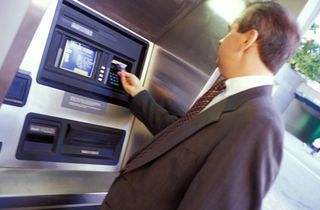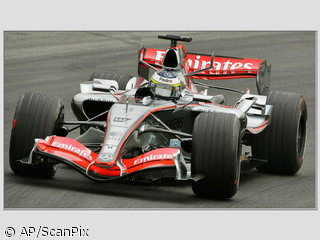The difference between spam and desired e-mail is whether the user has previously transacted business with the sender.
Published:
2 May 2003 y., Friday
While the panelists at the Federal Trade Commission's Spam Forum argue this week over just what, exactly, should be considered as spam, a new survey shows American business e-mail users have no such quibbles: the difference between spam and desired e-mail is whether the user has previously transacted business with the sender.
The survey, conducted by political and public affairs research firm Public Opinion Strategies for SurfControl, a Web and e-mail filtering firm, shows 54 percent of respondents said that unsolicited mass e-mail from a company they've done business with in the past is not spam. Everything else tested in the poll was considered spam.
An overwhelming majority of business users (86 percent), also say they favor legislation sponsored by Senators Conrad Burns and Ron Wyden that would outlaw spam that hides the identity of the sender or misleads the recipient on the content of the e-mail.
In addition to supporting the legislation, more than eight out of ten, 85 percent, say they would support their company using technology to control spam. Even among the small percentage of people who oppose a federal anti-spam law, 77 percent say they support using anti-spam technology at their company.
Šaltinis:
dc.internet.com
Copying, publishing, announcing any information from the News.lt portal without written permission of News.lt editorial office is prohibited.
The most popular articles
Software company announced new structure_ of it_s business.
more »
 The Self-Service and Kiosk Association has published its 2009 Self-Service Consumer Survey, a comprehensive report that reveals what consumers like and dislike about self-service technology — and what they want more of.
more »
The Self-Service and Kiosk Association has published its 2009 Self-Service Consumer Survey, a comprehensive report that reveals what consumers like and dislike about self-service technology — and what they want more of.
more »
 Private investors should hold up to 15 percent of their wealth in physical gold, according to a German asset-management company that plans to set up 500 "Gold-To-Go" ATMs in Germany, Switzerland and Austria sometime this year.
more »
Private investors should hold up to 15 percent of their wealth in physical gold, according to a German asset-management company that plans to set up 500 "Gold-To-Go" ATMs in Germany, Switzerland and Austria sometime this year.
more »
 ATM and debit card theft is expected to grow 10 percent to 14 percent this year, according to a survey of financial institutions that was released today.
more »
ATM and debit card theft is expected to grow 10 percent to 14 percent this year, according to a survey of financial institutions that was released today.
more »
 Built from potatoes, steered with carrots and powered by chocolate.
more »
Built from potatoes, steered with carrots and powered by chocolate.
more »
 Students at a Tokyo elementary school are waiting quietly for a "special lecturer" in science class. But when they see "Saya", a robot relief teacher, the kids are pleasantly surprised.
more »
Students at a Tokyo elementary school are waiting quietly for a "special lecturer" in science class. But when they see "Saya", a robot relief teacher, the kids are pleasantly surprised.
more »
 This week - the New York Times announced a deal with e-commerce giant Amazon timed to the release of its latest Kindle e-book device.
more »
This week - the New York Times announced a deal with e-commerce giant Amazon timed to the release of its latest Kindle e-book device.
more »
 Wincor Nixdorf AG and NICE Banking, an independent ATM deployer in South Korea, have partnered to grow a network of ATMs at sites owned by the country's top communications provider, Korea Telecom.
more »
Wincor Nixdorf AG and NICE Banking, an independent ATM deployer in South Korea, have partnered to grow a network of ATMs at sites owned by the country's top communications provider, Korea Telecom.
more »
 “The telecoms package has never been about anything to do with restrictions on the internet,” Malcolm Harbour told us ahead of Parliament's debate Tuesday on the telecoms package, which aims to reform the existing European electronic communications framework.
more »
“The telecoms package has never been about anything to do with restrictions on the internet,” Malcolm Harbour told us ahead of Parliament's debate Tuesday on the telecoms package, which aims to reform the existing European electronic communications framework.
more »
 On 20 April 2009 the Prague Congress Centre will host a ministerial conference Safer Internet for Children, which is organised by the Ministry of the Interior in cooperation with the European Commission.
more »
On 20 April 2009 the Prague Congress Centre will host a ministerial conference Safer Internet for Children, which is organised by the Ministry of the Interior in cooperation with the European Commission.
more »
 Payment card breaches in 2008 led to the most compromises and security breaches of record in the last four years, according to a new report from Verizon Business.
more »
Payment card breaches in 2008 led to the most compromises and security breaches of record in the last four years, according to a new report from Verizon Business.
more »